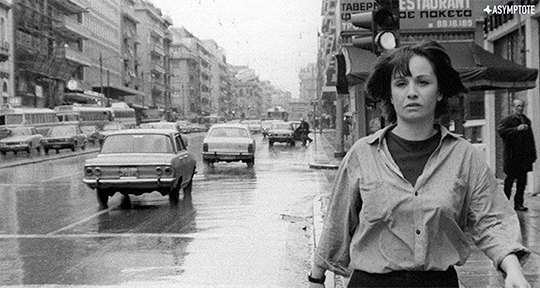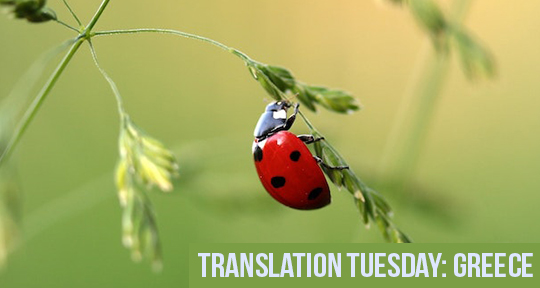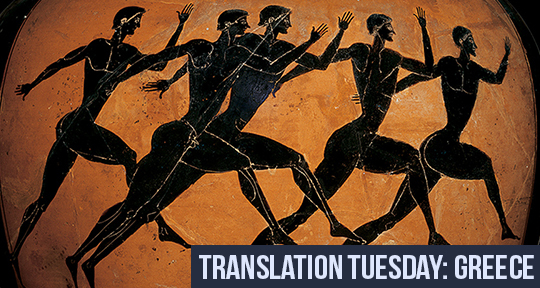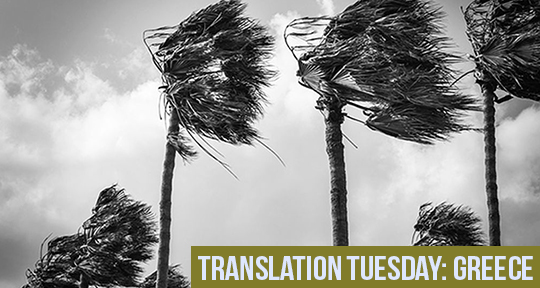As one of Greece’s most bold and unwavering poets, there is a ruthlessness running through the work of Katerina Gogou. In ferocious, free-styling verse, she vividly identified the brutalities and loneliness around her, and, with the incendiary vibration of a radical cry, came up always on the side of anarchism. As sensitive to hypocrisy as she was to corruption, Gogou dreaded a poetics that stood aside from politics, in one of her poems confessing: “What I fear most / is becoming “a poet” . . . / Locking myself in the room / gazing at the sea / and forgetting . . .” So it is that she remained dedicated to the necessity of rebellion and freedom until her death in 1993.
In this following article by Dimitris Gkionis, translated from the Greek by Christina Chatzitheodorou, we are offered an insight of this powerful poet in the midst of her time, navigating rages, passions, injustices, and her own poetic urgency. A woman who believes in words as action, as weapon—this is what comes into view.
On October 13, 1980, this piece, featuring an interview between Dimitris Gkionis and the poet Katerina Gogou, was published in the newspaper Eleftherotypia. It has since then been re-published—along with other interviews of Gogou—in Katerina Gogou, Mou Moiazei o Anthropos m’enan Ilio, Pou Kaigetai apo Monos tou (The man reminds me of a sun that burns by itself, published by Kastaniotis Editions in 2018). In both her poetry and interviews, Gogou’s work had always reflected her unconventional, rebellious, and combative spirit—always rebelling against authority, no matter what form. A supporter of the radical movement, she spent most of her days in Exarcheia—the historical centre of radical left-wing/libertarian politics—and was in constant conflict with the establishment, eventually giving up a promising career in acting to write poetry instead.
Through her verse, Gogou denounced social inequality, condemned police violence, criticised the death penalty, and stood in solidarity with political prisoners. Her mind was never at rest, and neither was her pen. While some of her poetry has previously been translated in English, it is the interviews that have been able to directly capture Gogou’s reasoning behind her aesthetic interventions, providing a more holistic picture of her and her work. In these conversations, she explains why she writes what she writes, and her anger at a stagnant world that she wants to change: “I am writing to get rid of this rock (kotrona) that is weighing me down. If I didn’t write, my ears would buzz. Ιf I don’t take this action, if I don’t put words on this white paper to bring myself to life, I could do things that are horrible and unimaginable.” READ MORE…








